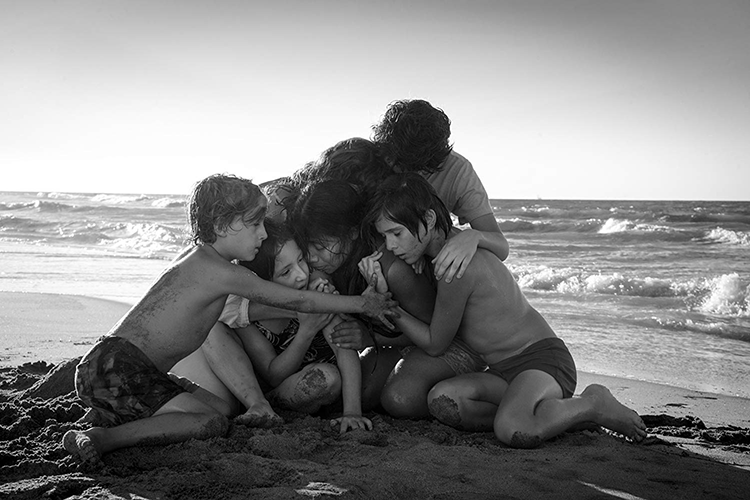The following questions and answers are excerpted from a conversation that followed the NBR screening of Roma.
Can you talk about the experience acting in the film?
Marina De Tavira: When Alfonso invited us…when we finished the long casting process he said that it was a film about life itself. We wouldn’t have a script, and we will be learning everyday what was going to happen with the characters. We were going to work in a completely different way. It was thrilling, fascinating, challenging and a strong transformative experience as an actress, but also as a woman. The way he would deliver the information about the scenes would be separate. He would talk to every actor alone, and then he would put on the scene. We were always dealing with the unexpected and surprises.
Alfonso Cuarón: It was all shot in chronology. It’s not as irresponsible as it sounds.
MT: There was a script. But, the way he gave it to us was incredible.
“it was this idea of not having a safety net.”
Yalitza, can you talk about your experience being a non-actor in the film?
Yalitza Esparicio: I didn’t have a clue who Alfonso was. I even felt some fear, because I thought it could be women trafficking of something like that. I felt some fear. But, as soon as he asked me if I wanted to be a part of the project I said absolutely yes. It was more the excitement of seeing how films were made. The first day it helped that he took me from the easiest things to the more complicated things. I thought to myself that I could do this. After a while I regretted it again, but at first I didn’t. I trusted all the way.
AC: I just would like to say that one week into the process Yalitza knew way more about film making than all of us.
Alfonso, you were director, producer, writer, DP, etc. How was it possible to do so many jobs for such a massive film?
AC: It was the conscious process of saying that I’m going to do a film without a safety net. It’s the kind of stuff that I always dream of doing. I talk about doing this sort of thing all the time with Chivo. I designed this film for Chivo…to have all these days, because he always complains about time. It’s the longest post production of image that we have done with technicolor. It became impossible for Chivo, because of his other commitments. But, it was this idea of not having a safety net. I wrote the script, and it was the first impulse. I didn’t want to revise the script. Everything had to come from memory. I said before that if I have shown this script to Guillermo Del Toro or Alejandro Innaritu or Carlos, my brother, they would have turned it into a better script technically in terms of the plot. I didn’t want to be concerned about that. I ended up being cinematographer, because Chivo couldn’t do it. It was not by choice. Being outside of the comfort zone was a process for everyone. It was for Marina. It was for Yalitza. It was also for the crew, because they were not used to working the way that we were working. I think that was the part of the alchemy of what happened.
I have to ask about the taxidermy dog room. What’s going on there?
AC: I slept in that room when I was a child. The decision with the film was also to shoot in the places where this actually took place. The house was impossible, because the new owners had completely changed it. We took exact measurements, and we reproduced the house in the shell of another house that had exactly the same structure. We bought in the original materials. Most of the furniture is original. One thing was to shoot in the hacienda. The hacienda was not in the good state, and we had to redo floors and stuff. But, the thing is that I really slept in that room. As a child you didn’t question it. You have all these dogs with marble eyes over there on top of the bunk bed. You didn’t think twice about it. Now I find it horrific.

